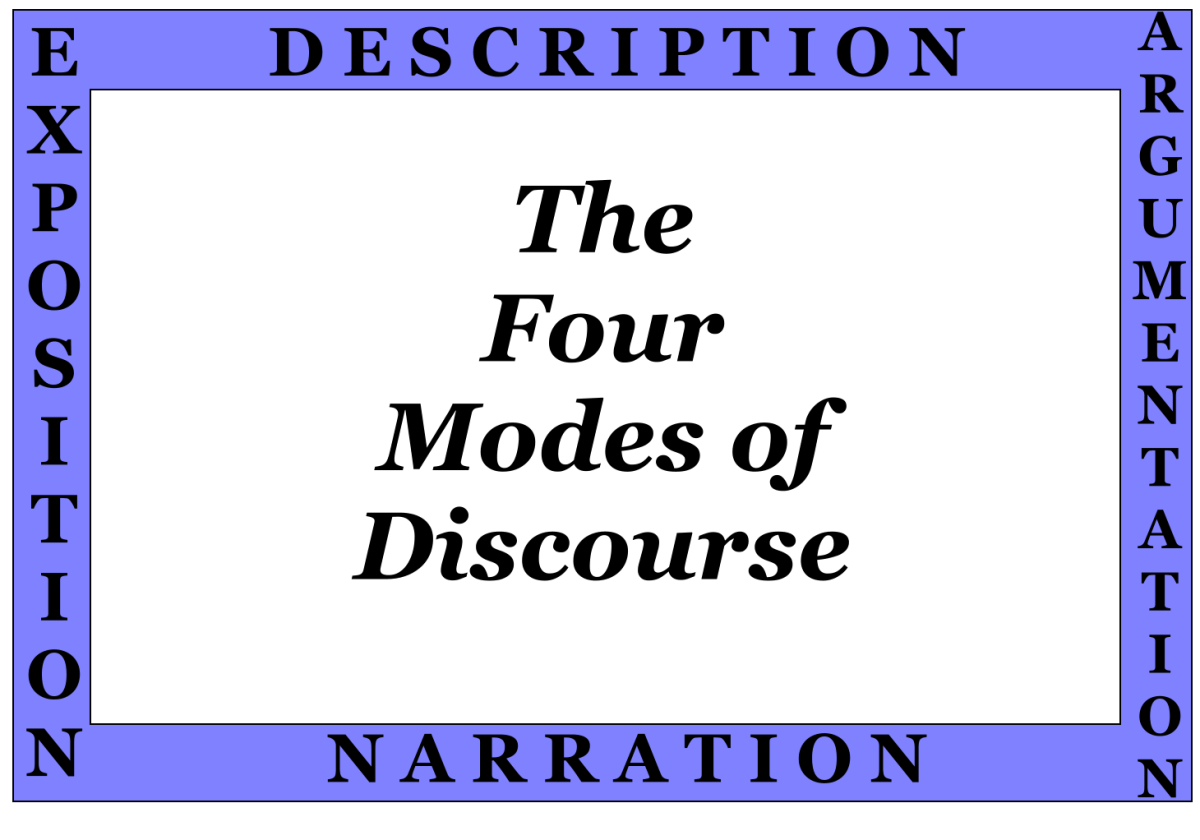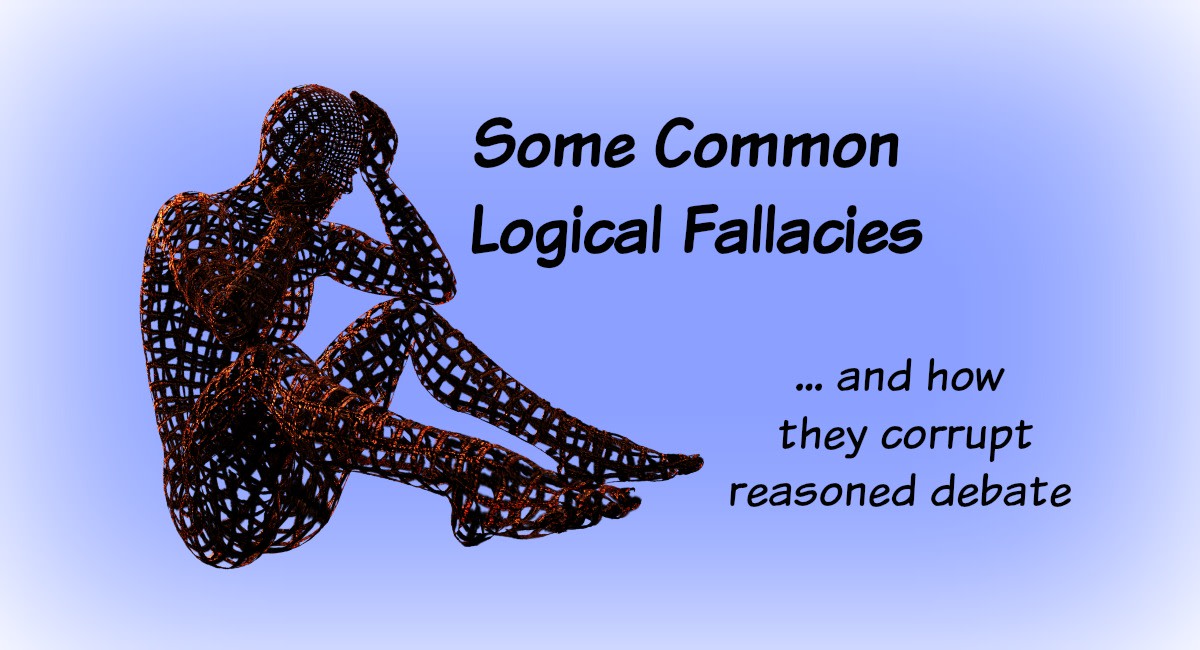Identifying Bias and Fallacies
We have a disease! Not one with vomit and grossness, but a pestilence much more subtle – one with words and ideas. The media is constantly bombarding us with opinions and outright subjectivity (see Fox News), but simply calling out bias without justification makes us just as uneducated and ignorant as the people we point our fingers at.
Here, I present a simple list of symptoms for a piece of information that is plagued with bias, and we, as the intelligent readers/doctors/writers, can diagnose and properly remove bias before we make decisions.
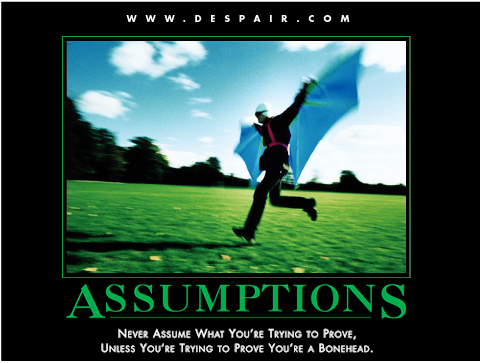
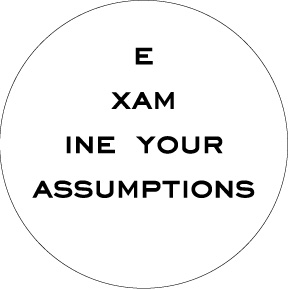
Assumptions and Definitions
When a writer presents you with assumptions and definitions, we should always pay close attention to them, just like the fine print of a credit card advertisement. The assumptions are exactly the rules of the “game”, or model the writers wish to present to us in order for us to view the world a certain way.
For example, the neoclassical economics model defines a person as a “self-interested utility maximizer operating with finite resources within a society. ” In laymen’s terms, this means that a person will never be driven to buy or sell based on emotions and will always be logical. Also, within this definition, a person will maximize his/her utility (which, in this case, is money.) We can easily think of how this definition is extremely narrow, because we also understand that mothers do not raise their children because they wish for return. In mathematical terms, the previous sentence is an “axiom”, or “a self-evident or universally recognized truth.” Yes, I recognize that you might not agree that all mothers are caring because of love; however, by a rule of logic, raising one counterexample is a way to disprove an argument that claims to be always true. Suppose we do not quantify love; then let’s go one step further. Another counterexample is volunteer work – why would a person volunteer? By the definition of a person in the economics field, a person will do anything if and only if the action will maximize his/her utility! Thus, by these two counterexamples, the definition becomes an assumption, and when we realize that we are working with a piece of media that is based on an assumption, we can view their bias with more clarity.

My Perspective on Your Perspective on His Perspective ...
Once we’ve identified the assumptions, we could work with the writer’s perspective. What “take” does the writer work with? In one of my economics classes, my professor talked about Columbus. At first, we looked at the high school textbook version of Columbus, where he is a hero who discovered America. Then the professor dug deeper, and began to ask questions from the Native American’s perspective, and we see that Columbus brought disease and slavery to America, and destroyed the Native American’s way of life. In other words, Columbus was a genocidal maniac from the Native American’s perspective - why would textbooks “cover up” such a big fact? That is because many high-school textbooks are written by American men/women of European descent.
As we can see, perspective can change what the author focuses on in a piece of literature, and can also give another type of bias. This type of bias is much more difficult to spot than the first one mentioned, because it involves more abstract ideas and requires more critical reading and thinking to distinguish.

Colbert Report (Satire)
Statistics: [Citation Needed]
Sure, statistics and numbers can give an audience a lot of confidence - but they can be powerfully deceptive. To give you an example, the Colbert Report actually covered the “Beer Pong Causing Herpes” hoax. Apparently, a humor website claimed this info was valid and from a study by the CDC (Center for Disease Control). This “news” spread to a college newspaper and then to the media. We see that the CDC actually had to make a webpage to clear this confusion. The path to hell is paved with good intentions (and poorly researched statistics.)
Rhetorical Statistics
Let me define a term: rhetorical statistics - using specific formatting of statistics to
effectively to please or persuade. Rhetoric doesn’t imply lies - but a scientist or newscast can use rhetorical
statistics to make an impact.
For example, I can state a fact: over 9,000 people died from
HIV in 2007. However, this number, as we know, seems small, however true it is.
By displaying only a small, round number, we are obscuring the facts. Actually,
according to University of California in San Francisco, the death toll from
HIV/AIDS is estimated to be 2,000,000.
Note: the keyword is not “deaths” or even 2,000,000; the key phrase is “estimated to be.”
When the news states a number, make sure that we check the facts before writing or arguing with a friend about it. Not only is the display of the number important, but how the number is measured is just as important.
Carbon dating is another example of possible statistical rhetoric. Carbon dating measures the age of an item using half-life of a radioactive isotope of carbon. However, beware if a scientist uses only this as their measurement of an item’s age, because different factors such as the change in radioactivity in the Sun can change the amount of isotopes in a sample.
If numbers scare you, go here.
Logically Illogical
After we boil down the statistics, we still have logical fallacies to filter out. Here are three major logical fallacies:
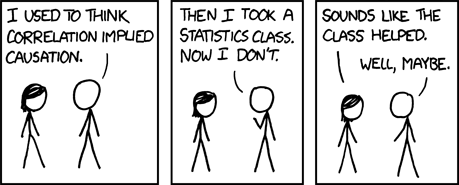
Composition
This is a fallacy that assumes if a condition is true for an individual in a group, the same condition is true for the whole group.
- Fallacy Example 1: If a person at a show stands up while there are seats, he will see better. However, if EVERYONE in the theatre stands, this will not be true for the whole group.
- Fallacy Example 2: If one person voted for McCain, there was no impact to the election. However if EVERYONE voted for McCain, we would have a Bush clone in office. (OBVIOUS BIAS, by the way.)
Post hoc, ergo propter hoc
This is Latin mumbo-jumbo for “Because A happens before B, therefore A causes B.” Simply because there are correlations between A & B does not imply that A
causes B. We see the words correlations used almost synonymously with “imply”
and “causes” in the media, and we must be careful to distinguish the fallacies
and truths.
- Classic Fallacy Example: The Hemline Theory - A theory that stock prices move in the same direction as the hemlines of women's dresses. For example, short skirts (1920s and 1960s) are symbolic of bullish markets and long skirts (1930s and 1940s) are symbolic of bearish markets.
Other links
- Wikipedia: Avoid weasel words
Wikipedia's list of weasel words. (Hint: Make it a game to find these weasel words in common articles!) - Fallacies
Descriptions of common fallacies.
Affirming the consequence
This one is when a person argues if A caused B, then B happens if and only if A happens.
- Fallacy Example: Rain makes the grass wet, therefore if the grass is wet, it rained. Counter: A drunken student got hosed on the lawn, therefore the grass is wet.
- Fallacy Example 2: A well researched paper has professional and formal tone and language, therefore a paper with professional and formal tone is well researched.


Books on Logic
P.S.: Weasel Words and Passive Voice
In Wikipedia, a website that can be edited by anyone, actually has an entry about bias and “weasel words.” Here’s the list. (bias: to save you from going to that awful website filled with misinformation and thinly disguised opinions taken for facts.)
- "Some people say..."
- "Some argue..."
- "Clearly..."
- "Contrary to many..."
- "As opposed to most..."
- "Research has shown..."
- "...is widely regarded as..."
- "...is widely considered to be..."
- "...is claimed to be..."
- "...is thought to be..."
- "It is believed that..."
- "It is rumored that..."
- "It has been said/suggested
/noticed/decided/stated..." - "There are rumors that..."
- "Some people believe..."
- "Some feel that..."
- "They say that..."
- "Many people say..."
- "It may be that..."
- "Could it be that..."
- "It could be argued that..."
- "Critics/experts say that..."
- "Some historians argue..."
- "Considered by many..."
- "Critics contend..."
- "Supposedly..."
- "Presumably..."
- "Allegedly..."
- "Arguably..."
- [...]
There are more, but of course, as most people would agree, it is claimed that experts suggest studies show that it is notable in some people's opinions that we could not list all the weasel words. (Whoops?)
Please note that many of the weasel phrases cuts out the
subject of the sentence. (Grammar terms: The subject is the noun “doing” the
verb.) When a writer obscures the subject of a sentence with passive voice, he/she
can change the whole “feel” of the sentence. For example, “There were 5
students injured in the rally yesterday” versus “The police caused 5 students
injuries during the rally yesterday” is a huge difference.
However, beware of the fallacies mentioned in the last section: “The police went to the student rally, and 5 students were injured” might seem like the police caused the injuries at first glance; however, this example is a demonstration of the Post Hoc fallacy.
Final Words
I hope that this will help you untangle the webs of opinion
to see the true facts or perspectives of an author, and perhaps help you write
with a more conscious mind. Good luck reading critically and writing logically!


